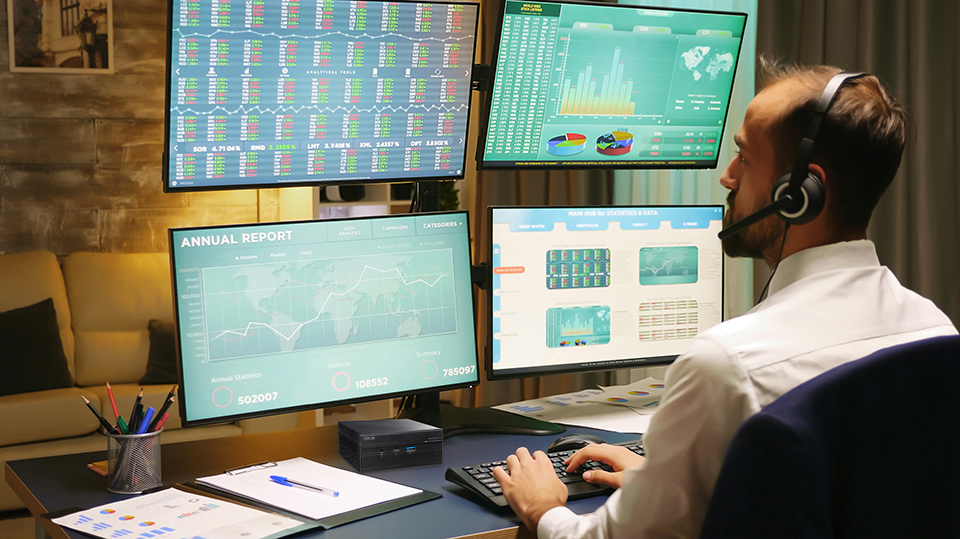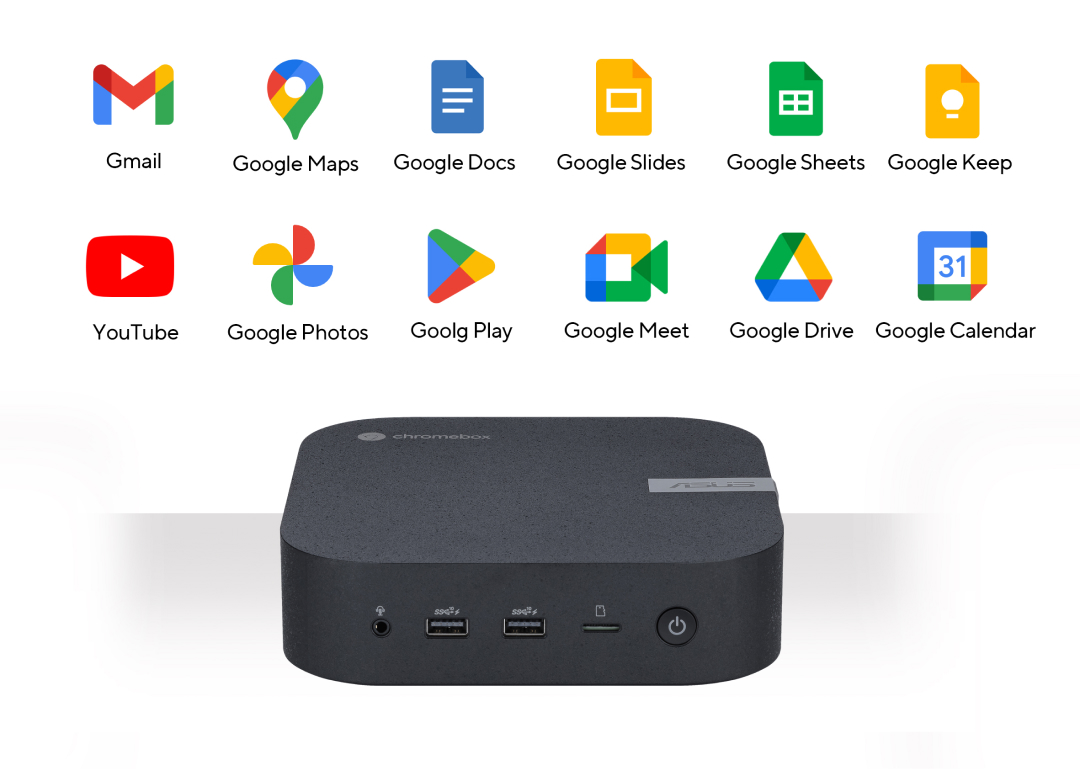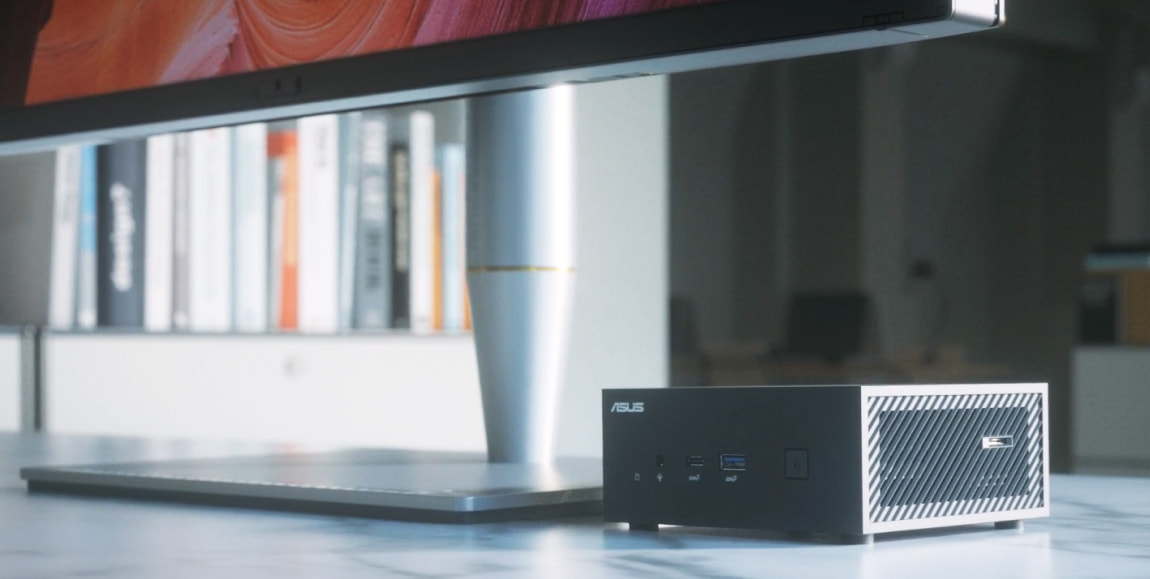
Offering incredible power in small formats and able to be installed virtually anywhere, is there a viable application for Mini PCs your business, and if so, where? Let’s look at where the Mini PC belongs, and how it can transform your business.
Replacing Large Desktop Systems
Most day-to-day work doesn’t require the power draw and physical space demanded by traditional tower PCs. Data entry, web browsing, emails and word processing draw little energy and demand very little performance, so why are businesses still opting for full towers to drive such tasks?
Small form-factor systems fulfil these needs without the same space requirements, delivering high performance across the variety of tasks expected by systems in the office, with incredible power efficiency. Swapping outdated, bulky desktop systems for modern Mini PCs can save space, time, and energy costs.
Energy-Efficient Operations

Have a system or configuration where energy efficiency is vital? Perhaps you have a system that’s required to run twenty-four hours a day, calculating operations, managing IT infrastructure, or acting as a permanent office email server, for example?
Larger systems make little sense in these scenarios; the power they draw and the space they take up mean lower operational effectiveness over longer periods. Mini PCs offer a better solution: they use less energy to run, even on a permanent basis. For example, the ASUS PN52 has an energy-efficient design that reduces environmental impact while helping to lower operating costs for your business – consuming as little as 11W at idle. Its average energy consumption is 14% lower than the strict Energy Star requirements.
Where Space is Critical

Naturally, small form-factor systems are desired for their size. But until recently, small systems haven’t always been able to provide the level of performance needed by heavier workloads, or operations that span more than one system.
Mini PCs however, offering superior processors, are mini powerhouses, ideal for desktop replacement or installing within embedded systems such as kiosks, gaming and gambling systems, and digital signage displays.
For example, the ASUS ExpertCenter PN64 is powered by the new 12th Gen Intel® Core™ CPU featuring a new hybrid processor design. It includes performance-cores dedicated to processing heavy loads and prioritised tasks, as well as efficient-cores catering to background tasks such as web browsing. This new core design enables PN64 to process multiple tasks simultaneously in the most efficient way possible.
Modern, space-saving design means Mini PCs are small enough to be hidden out of sight, freeing-up important desktop, floor or storage space. They can even be locked onto a VESA mount for additional security.
USB Power Delivery Input means Mini PCs can draw power from any USB Power Delivery-enabled display or device, eliminating the need for a separate power adapter to create a neater, uncluttered workspace.
Where Versatility is Key

If your business has unique requirements, that’s not a problem. Mini PCs are the workhorses of modern IT, with versatility to meet multiple demands built-in to the design.
For example, configurable ports mean you’re able to choose your own combination, making the system suitable for any conceivable display scenario such as digital signage, POS systems or intelligent vending machines. The ASUS PN52 can support up to four 4K displays via two HDMI® ports, DisplayPort™ over USB-C® or other user-configurable ports, without any limitation on the combination used.
A common feature is an easy-access panel that allows users to replace and upgrade memory, storage and the wireless card, extending the life of the device and customising it to specific uses.
This versatility often extends to storage design, allowing users to create their own custom storage solution with the balance of speed and capacity to fit their needs. Mini PCs are often cloud-focussed devices, harnessing the opportunities that the cloud offers. This includes using the immense storage space on Microsoft’s OneDrive or Google Drive, reducing the need for local storage or file systems – reducing costs.
A Choice of OS

Businesses are no longer limited to Windows-based devices for their IT needs - Google Chromeboxes offer Chrome OS as an alternative. A cloud-first operating system, Chrome OS provides employees with a modern experience and devices that stay fast, have built-in security, deploy quickly and can reduce the total cost of ownership.
The ASUS Chromebox 5 empowers businesses, IT administrators and remote employees with the tools they need for enhanced productivity and efficiency. With a rich selection of Android apps available on Google Play, you can easily find great apps for productivity, communication, entertainment and more.
When you consider automatic updates for the latest features and virus protection; automatic file synchronisation to Google Drive for anytime, anywhere access; and a wide assortment of apps that work online and offline, Chromeboxes and Chrome OS offer an enticing choice for business use.
Redefining Workstations

The definition of the workstation computer is evolving. The large, bulky desktop towers are having their thunder stolen by smaller systems with lower energy use and powerful computing performance. Their combination of energy efficiency, size and versatility ensures a wide variety of uses that keeps growing, and more and more businesses are exploring how to capitalise on the opportunities they bring.
ASUS produces a range of ultra-compact Mini PCs and Chromeboxes, providing flexible, comprehensive solutions for a wide range of office, retail, digital signage, hospital and other business applications.
Find out more
Find out more about how Mini PCs could benefit your business by visiting the dedicated ASUS Mini PC microsite.

